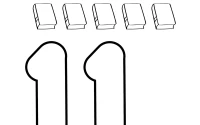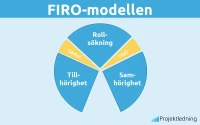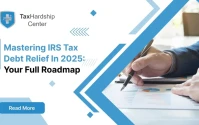The Great Decoupling: Why State Tax Laws Are Becoming the New Frontier of Innovation
Alright, let's talk about taxes. I know, I know, it’s not exactly the stuff of science fiction or groundbreaking tech, but bear with me because something truly fascinating, something profoundly disruptive, is happening right under our noses, and it’s going to redefine how we interact with our local governments and, frankly, how we think about our financial futures. Forget the monolithic federal directives for a moment; the real action, the real innovation, is bubbling up from the states.
You’ve probably heard the buzz about the federal "One Big Beautiful Bill Act," promising all sorts of shiny new `tax breaks` – `no tax on tips`, that generous `bonus senior deduction`, even `no tax on overtime pay`. Sounds great on paper, right? But then, Washington D.C. swooped in with an emergency bill, effectively saying, "Thanks, but no thanks," to many of those federal goodies. They’re facing an expected $1 billion revenue loss over the next three years, largely from federal government-related job shifts, and they’ve made a hard choice: local residents won't see those `income tax` savings on their district `tax return`. While a senior might lose out on $360 to $390 from that $6,000 deduction, and others miss out on `capital gains tax` exclusions or higher standard deductions, this isn't just about lost deductions; it's about a fundamental shift in fiscal power. When I first dug into the implications of this, I honestly felt a surge of excitement. This isn't just about numbers; it's about agency, about communities taking control of their destiny.
The States Strike Back: Labs of Democracy in Action
This isn't an isolated incident, a mere blip on the `tax calculator`. It’s a seismic shift. Decoupling, in simpler terms, means a state chooses not to automatically adopt federal `tax changes`, opting instead to keep its own rules. Think of our states as individual nodes in a vast, distributed network, each now forging its own economic path rather than simply mirroring the central server. With COVID-era federal aid depleted and an economy that feels like it’s constantly doing the cha-cha, states are on the hunt for money, and they’re realizing they don’t have to play by Uncle Sam’s exact rules anymore.
Colorado, for instance, has rejected `no tax on overtime pay`, adding a specific line to its state `tax form` to claw back those deductions. New York is continuing to tax tips and overtime, creating new "add-back" codes for its IT-225. Illinois is doing something similar, and Maine? They’ve rejected the `bonus senior deduction`, car loan interest deductions, tips, and overtime. Excited about no tax on tips? Bonus senior deduction? Not in these states details how these states are opting out of federal tax changes. While some, like CPA Richard Pon, might see "havoc" in state budgets, I see a crucible. A challenge that forces ingenuity, pushing states to forge stronger, more resilient fiscal frameworks, rather than just passively accepting federal dictates. This isn't chaos; it’s emergent order, a dynamic system adjusting to new realities.
Imagine the buzz in those city council meetings, the intense debates, the late-night sessions where local leaders grapple with these complex `tax laws`. You can almost hear the gavel striking, signaling not just a vote, but a monumental shift in local financial autonomy. This newfound freedom, this ability to tailor `tax brackets` and `property tax` structures to local needs, is profoundly powerful. But it also begs the question: What if this leads to a new era of state-level innovation, where residents actively choose their domicile based on the best-fit `tax services` and economic incentives, rather than just federal mandates? Could this spark a healthy competition that ultimately benefits us all, pushing states to be more transparent and efficient with our `tax dollars`? Of course, with this newfound autonomy comes immense responsibility. States must ensure these decisions are made with transparency and equity, avoiding policies that inadvertently disadvantage vulnerable populations.
The Dawn of Fiscal Federalism 2.0
The sheer audacity of these states, stepping out from the shadow of federal uniformity, isn't just a budget fix; it's a profound declaration of fiscal independence, a thrilling, real-time experiment in economic self-determination that could redefine how we think about local prosperity and citizen-centric governance for generations to come! This isn't just about `income tax brackets` or your annual `tax preparation`; it's about the very fabric of our republic, decentralizing power in a way that could foster incredible local solutions.
Think of it like the early days of the internet, where decentralized networks, rather than a single broadcast authority, began to empower individual nodes. This tax shift is a similar kind of decentralization, but for fiscal policy. It’s forcing states to look inwards, to innovate, to truly understand their unique economic ecosystems. And if you check the pulse of online forums, you'll find a growing chorus of people, initially perhaps bewildered, now starting to grasp the deeper implications. They're asking, "What does my state do? How can we shape this?" That's the sound of engagement, my friends. This complexity makes DIY `tax preparation` less viable, as Eric Clements of Thomson Reuters points out, meaning `tax preparers` will become crucial guides through this evolving landscape. But it also means a more engaged citizenry, demanding better from their state `tax collector` and `tax assessor`.
The Future is Being Forged, State by State
We're witnessing the birth of a new fiscal landscape, one where states aren't just passive recipients of federal mandates but active architects of their own economic destinies. This isn't a problem to be solved; it's a grand experiment to be watched, to be engaged with, and to be shaped by all of us. The next few years will be a masterclass in adaptive governance, and I, for one, can’t wait to see the innovations that emerge from this vibrant, decentralized competition. This is where the real breakthroughs will happen, where local needs meet local ingenuity, forging a stronger, more responsive future for us all.










